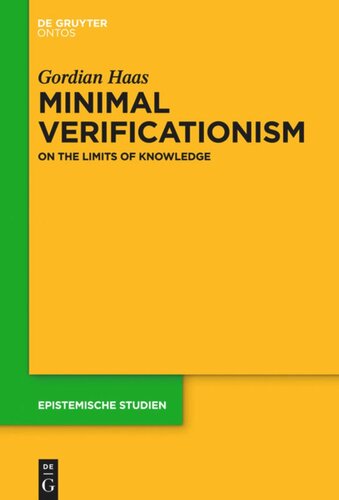

Most ebook files are in PDF format, so you can easily read them using various software such as Foxit Reader or directly on the Google Chrome browser.
Some ebook files are released by publishers in other formats such as .awz, .mobi, .epub, .fb2, etc. You may need to install specific software to read these formats on mobile/PC, such as Calibre.
Please read the tutorial at this link: https://ebookbell.com/faq
We offer FREE conversion to the popular formats you request; however, this may take some time. Therefore, right after payment, please email us, and we will try to provide the service as quickly as possible.
For some exceptional file formats or broken links (if any), please refrain from opening any disputes. Instead, email us first, and we will try to assist within a maximum of 6 hours.
EbookBell Team

4.0
6 reviewsVerificationism has been a hallmark of logical empiricism. According to this principle, a sentence is insignificant in a certain sense if its truth value cannot be determined. Although logical empiricists strove for decades to develop an adequate principle of verification, they failed to resolve its problems. This led to a general abandonment of the verificationist project in the early 1960s. In the last 50 years, this view has received tremendously bad press. Today it is mostly regarded as an outdated historical concept. Theories that have evolved since the abandonment of verificationism can, however, help overcome some of its key problems. More specifically, an adequate criterion of significance can be derived from a combination of modern theories of justification and belief revision, along with a formal semantics for counterfactuals. In view of these potential improvements, the abandonment of verificationism appears premature. Half a century following its decline, it might be about time to revisit this disreputable view. The author argues in favor of a weak form of verificationism. This approach could be referred to as minimal verificationism, as it involves a weakening of traditional verificationist principles in various respects while maintaining their core idea.